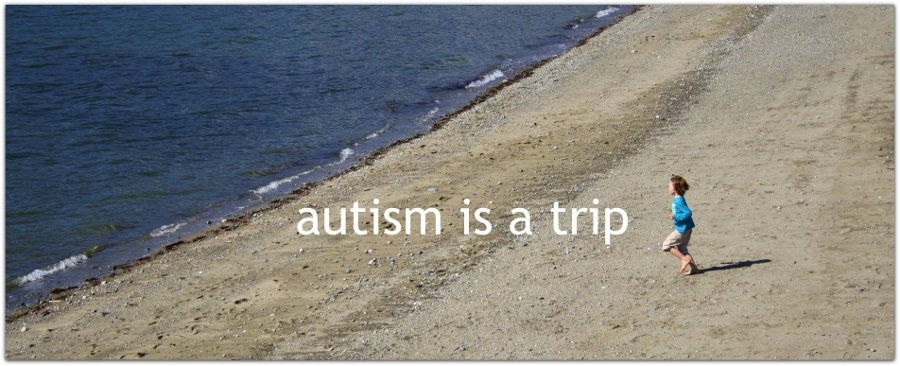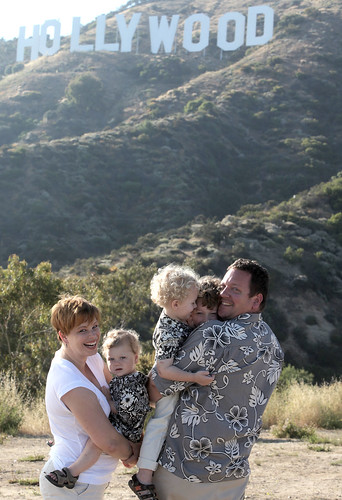One year ago next week, we moved our family from Los Angeles to British Columbia, just South of Vancouver. We left our life behind – my husband’s job, our friends, our autism support network – in search of one more suited to raising both physically and mentally healthy children.*
From the moment Jack was born we understood that we’d eventually have to leave Los Angeles. We weren’t sure where or when, we just knew that ultimately we didn’t want to raise our children in the chaos of Hollywood.
My husband was born in Canada, and we had talked about the possibility of moving there one day. We realized that a move of that magnitude would have to be planned well in advance, so three years ago we made a big decision: we decided that we would be moved and settled in time for Jack to start Kindergarten. We wanted him to start his elementary school career where he would most likely end it, in British Columbia.
Everyone knows the old adage about best-laid plans, and it turned out no differently for us. We spent the better part of two years thinking about moving, and the last two months packing frantically. There wasn’t much we could do ahead of our landing; Jack couldn’t be registered for school until a week before it opened. We spent our summer moving, exploring and getting to know our new homeland, with the endless support of my husband’s Canadian relatives.
Nobody we knew had any experience with autism in Canada, however, so we were pretty much on our own. I was led to believe that all would be fine once Jack started school, and essentially, it was. Well, eventually. Unlike the California system, where most ASD interventions are handled through the school district (with a few social interventions serviced by regional centres), any at-home services in British Columbia are dealt with through the medical system. Coming from a country where the mere whisper of autism could exclude my child from medical coverage for life, having him embraced by the medical community is nothing short of a miracle.
A miracle with a pretty startling caveat, unfortunately.
Jack was welcomed into his new school with open arms and given an IEP as quickly as possible. It took about six weeks to get it together, but that’s not the fault of the school or his integration teacher – had we enrolled him the previous winter like most children, everything would have been handled well before his arrival in the classroom.
The first two months of kindergarten were a test both for Jack and his teacher, as he had no in-class support. He was overwhelmed by the class size, the structure and the language (he is in a French immersion program, where nothing but French is spoken in the classroom). He was barely learning, as he wasn’t able to focus or attend. He frequently ran around in the halls and posed a flight risk, and therefore spent a lot of the early days sitting in the Assistant Principal’s office (not for punishment, but for the good of both his teacher and himself). It was heartbreaking to see my brilliant boy stuck in an “autism stereotype”: the unruly, unteachable child.
Then one day he was assigned a full-time SEA, Mme W. (a special education assistant, like his Behaviour Interventionists Eric and Charlie and Geoff in LA), and the planets shifted back into alignment. Within days Jack was attending, learning, and settling into his skin. He has blossomed under her guidance, and has thrived in the classroom. I know his teacher will attest to this. I also know she deserves a vacation somewhere warm this summer, although I’ll probably just give her some cookies.
Back to the miracle with a catch. While Jack was accepted into his school and given support without question, we were unable to get him any interventions through his medical plan without an “official” diagnosis of autism. Not a problem, I thought, as I have a binder four inches thick with reports and documentation and IEP’s. I dutifully filled out a pile of paperwork, made endless copies and shipped a package off to Victoria for approval by the Ministry of Health. Once we got their go-ahead, Jack would be eligible for government funding and we’d be able to set up some ABA for him.
The Ministry set us straight pretty quickly. My big huge binder meant nothing to them. In order to qualify for funding, Jack must be diagnosed by a Canadian doctor, who you can only reach by first navigating an obstacle course of bureaucracy. The first step is the family doctor, who then referred us to a pediatrician (a six-week wait), who sent us for a blood test and put us on the waiting list for the ONE clinic where they do diagnoses.
That waiting list is currently 18 months long.
I don’t really know what else to say other than I am stunned and amazed by this. Once children are “in” the system in British Columbia they receive top-notch care, but the wait can be interminable if the child is in need of immediate attention. There is a private clinic that will diagnose children quicker (their wait list is only four months the last time I checked), but unless we can somehow come up with $1500, that’s not an option.
The real kicker is British Columbia provides generous funding for children up to age six. After age six there is still money available, but it’s less than one-third the amount for younger children. Jack turns six in October, so there’s just no way we’ll get full funding for him. Even if we’d gotten him on the list the second we landed in Canada he most likely wouldn’t have been seen in time.
I have learned a lot about myself and our family in the last few months as we’ve wound our way through the BC autism maze. I have realized that we are so, so very lucky. There are many children on the too-long list that are unable to communicate, and won’t be able to until their number is drawn and their funding approved.
I know now how strong our personal autism foundation is, and what it took to get us here. Every hour spent in occupational therapy and speech therapy and the inclusive infant program and collaborative preschool was worth it. Every minute shared with the multitude of amazing people who gave of themselves so Jack could be the person he was meant to be is sacred.** Every period of change that Jack’s gone through, every disruption and every tantrum was another chance for us to learn how to support him. It was worth every second.
Most importantly, as frustrated as I am, I know that even without funding Jack will be ok. We will be ok. We made it through last summer without any services, and we’ll make it through this summer, too. We are strong, and we have been given the tools to guide us no matter the situation. If I didn’t think we could do this alone, I might be screaming.
Instead, I’m wondering what I can do, as one person, to help the system here. I’m thinking about the children who don’t have the foundation we have, whose families don’t have the tools or the strength to make it 18 months, through no fault of their own. Maybe we can help in some small, simple way. I hope so.
What a difference a year makes.
*********************************
*I would like to point out that many, many dear friends of ours are successfully raising children in Southern California, and I in no way mean any disrespect to them. As much as we wanted it to be, SoCal just wasn’t a good fit for us as a family.
**Amelia, Deborah, Shelby, Jane, Amanda, Eric, Charlie, Geoff, Jesse, Mrs. Colbin, Christine, and everyone else I’m forgetting right now… you know who you are, and you know you are loved.
Share this: Twitter | StumbleUpon | Facebook | digg | reddit | eMail













